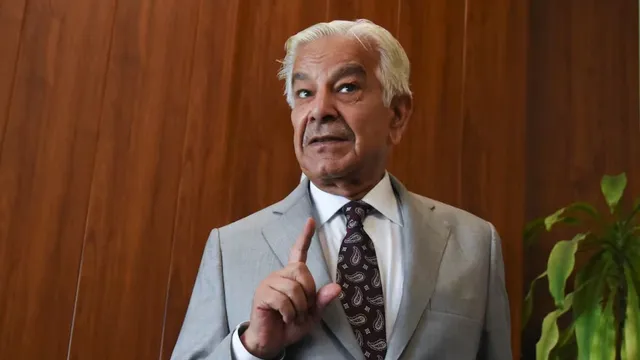- By Supratik Das
- Fri, 26 Sep 2025 05:30 PM (IST)
- Source:JND
Khawaja Asif UN speech: Pakistan’s Defence Minister Khawaja Muhammad Asif found himself in the spotlight for the wrong reasons at the United Nations Security Council (UNSC) after his speech on artificial intelligence and regional tensions was marked by repeated fumbles and mispronunciations.
Speech Turns Viral For Verbal Slips
Asif was speaking at the AI Innovation Dialogue, chaired by UN Secretary-General Antonio Guterres, when he stumbled several times on words and phrases, distracting from his core message.
At least seven verbal errors were noted. He mispronounced “risk” as “riks,” “development” as “developend,” and repeatedly said “sirst time” before correcting it to “first time.” He also faltered while mentioning “six pillars,” initially calling them “six pip-pillars.” At one point, Asif confused “breathtaking pace” with “breathtaking space,” drawing amusement online. A video compilation of the fumbles, posted by news agency ANI, quickly went viral. Social media users mocked the delivery, with one writing, “Operation Sindoor shook him.” Another commented, “He can’t even speak one sentence properly.”
Despite the slips, Asif attempted to underline the risks of artificial intelligence in modern warfare. He warned that AI was “reshaping the world at a breathtaking pace,” but added that it also lowers the threshold for conflict, compresses decision-making timelines, and narrows the scope for diplomacy. “Asif said the absence of global standards and legal guardrails could deepen the digital divide, create new dependencies, and imperil peace.” He fumbled on the word “risk” even as he tried to drive home this point.
Operation Sindoor And Ceasefire
Referring to recent hostilities, Asif highlighted India’s Operation Sindoor, launched in May this year after the Pahalgam terror attack killed 26 tourists. He claimed that for the “first time” – again pronounced incorrectly at first – nuclear-armed states used autonomous loitering munitions, high-speed cruise missiles, and drones against each other during a military exchange.
Operation Sindoor, carried out by India in response to the Pahalgam attack, had escalated tensions between the two neighbours before a ceasefire was announced on May 10. Asif said the conflict highlighted how AI-driven weapons such as drones and loitering munitions could fuel dangerous escalations.He cautioned that “without international cooperation and ethical standards, AI in warfare risks destabilising already fragile regions.”
The UNSC session, beyond Asif’s speech, also addressed several pressing global challenges. A crucial vote is pending on delaying the automatic “snapback” of UN sanctions on Iran, while the council has extended its peacekeeping mission in Lebanon (UNIFIL) until 2026. Discussions also touched upon the conflicts in Ukraine and South Sudan, as well as rising tensions in Lebanon following an Israeli drone strike. UN Secretary-General Antonio Guterres used the session to renew his call for Security Council reforms. He stressed that the body must represent “the world of today, not that of 1945” and highlighted India as an important voice in any restructured council.

